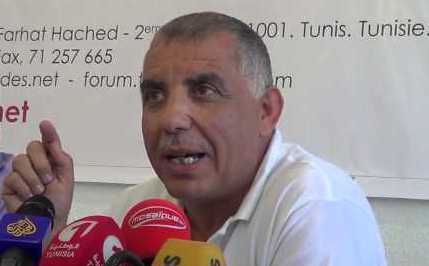“It’s easy to criticise and condemn the crimes of others. It’s a little harder to look in the mirror and ask what we’re doing because it’s usually not very pretty, and if we’re minimally decent we’re going to try to do something about it.” Noam Chomsky (Anti-Semitism, Zionism, and the Palestinians)
Prominent journalist and writer, Masha Gessen, who is Jewish and whose family lost members in the Holocaust, has seen her Hannah Arendt Prize for political thought withdrawn from her. The reason? On December 9, Gessen published an essay in The New Yorker where she criticized Israel’s war on Gaza, comparing the Palestinians’ ordeal to the one experienced by ghettoized Jews during the Nazi occupation of Eastern Europe.
In the aforementioned essay, entitled “In the Shadow of Holocaust”, Gessen reflects on the “politics of memory”, i.e., how the memory of the Holocaust turned Israel into a forever victim, eliminating every criticism that targets its colonial hegemony and justifying the war crimes committed in Gaza.
At the origin was the confusing definition of anti-Semitism as settled in 2016 by the International Holocaust Remembrance Alliance (I.H.R.A), an intergovernmental organization. The IHRA adopted first a clear definition of anti-Semitism, seen “as a perception …which may be expressed as hatred towards Jews.” Then the definition takes a fuzzy logic when anti-Semitism has included “claiming that the existence of the State of Israel is a racist endeavor” or “drawing a comparison” between contemporary Israeli policy and that of the Nazis.
This curious definition has no legal force. However, as has been proven recently, it has been endorsed by the EU member states and the US State Department, making it difficult to address any criticism against the genocide taking place in Gaza. Even Jewish artists, thinkers and writers are “silenced by this definition” for fear of being accused of anti-Semitism.
For Gessen, western countries, which support Israel’s violation of International Law, have short memories as they have forgotten the whole intellectual framework of the post-Second War, a framework that was meant to protect human rights for all people in periods of peace and war. They have forgotten that the 1948 Universal Declaration of Human Rights “was a response to the barbarous acts …that outraged the conscience of mankind.” What is happening in Gaza is another dark stain on that conscience. And another forgotten lesson.
The dangerous impact of the obscure definition of anti-Semitism is that it makes the real one, the criminal hostility towards Jewish people, a cock-and-bull story. Indeed, accusing everybody who denounces Israel’s colonial policy or war crimes in Palestine of being anti-Semitic casts doubt on real anti- Semitism. An accurate definition is what the world needs now to protect human rights and it would focus on real expressions of hatred towards the Jews, not on the instrumentalized and politically motivated accusations that are meant to protect Israel from any critical remarks, and worse, shamelessly justify its war crimes.
Fortunately, in this blurred context, there are a few voices of reason that trigger hope and spread inspiration. Omar Bartov, the Israeli born historian and professor of Holocaust and genocide studies clearly designated the current right wing government as “an apartheid regime.” He and over 2,000 academics and public figures published a petition stating that “There can be no democracy for Jews in Israel while Palestinians live under an apartheid regime.”
Last November, a group of Jewish writers, artists and activists drafted a letter saying that they “wish to disavow the widespread narrative” that considers “any criticism of Israel is inherently anti-Semitic” adding that Israel and its defenders “have long used this rhetorical tactic to shield Israel from accountability, dignify the US’s multibillion-dollar investment in Israeli’s military, obscure the deadly reality of the occupation and deny Palestinian sovereignty.”
Meanwhile most western countries continue to adopt Israeli’s far right rhetoric, making restrictions on pro-Gaza demonstrations, demonizing any criticism of Israel and hampering pro-Palestinian advocacy; thus raising questions about their belief in democracy, human rights and the role of law. For instance, the “Summit for Democracy”, initiated by the USA, and which is going to be held in March 2024 in South Korea seems now a mere empty gesture. Says a Finnish scholar about the double standard policy of western countries: “Anti-Semitic and hate speech against Israel is not allowed (as it shouldn’t be); but dehumanizing Palestinians is!”. In fact, the mere reference to their right to breathe life has become synonymous with antisemitism.
Messaoud Romdhani is a Tunisian human rights activist
 Log in
Log in









